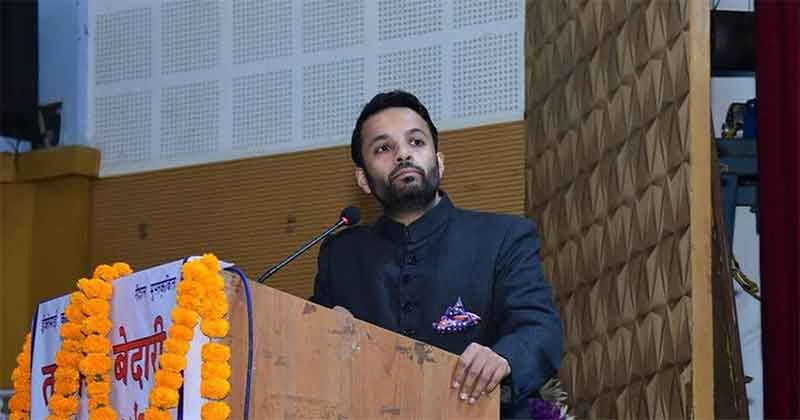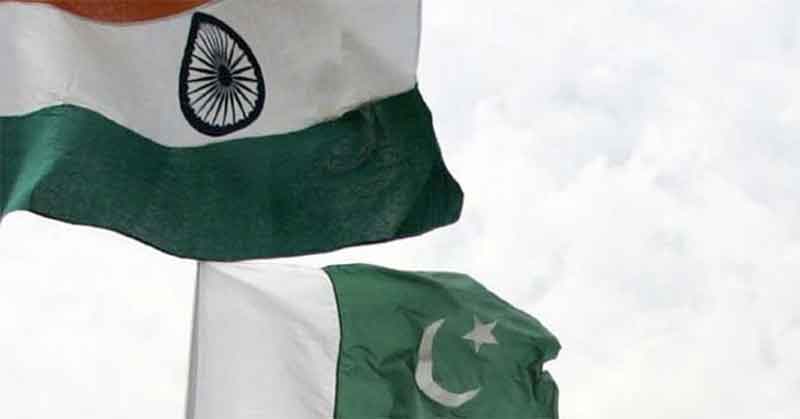
At the height of the emergency in 1975-77 under Indira Gandhi,the country had to cope with dangerous political suppression. You were imprisoned for opposing the government or writing against it. For much of the Emergency, most of Gandhi’s political opponents were imprisoned and the press was censored. More than 100,000 political opponents, journalists and dissenters were imprisoned by her regime. During this time, a mass campaign for vasectomy was spearheaded by her son Sanjay Gandhi. The emergency was withdrawn in 18 months, ostensibly on the incorrect understanding that Mrs. Gandhi had regained control over the country’s political structures and even win an election and find her way back to power. It seems that the political climate of autocracy never really died. Clearly the Emergency had put Mrs. Gandhi on a diet of amnesia.
The Emergency has resurfaced, except it is unannounced. The country is gradually transitioning from a democracy into an autocracy. The foundations lie in the hands of the benign-looking Congress regime which introduced four draconian laws. The BJP has gleefully inherited these laws and practices them with even greater aggression.
The UAPA remains a notorious tool for the government to keep the accused in jail for prolonged period of time. Anti-terror trials rarely result in a conviction. Strict bail provisions under UAPA and slow investigative process, release during trial is virtually impossible, creating a convenient setting for illegal detention and torture. The Congress also brought in Section 124A of the Indian Penal Code, 1860 which defines the offence of “sedition”, a colonial-era relic and a replicate of an Act enacted by the British to repress India’s independence struggle. The Jammu & Kashmir Public Safety Act (PSA), 1978 is a ‘lawless law’, which has effectively circumvented the criminal justice system in Jammu and Kashmir. The legislation allows administrative detention in Jammu & Kashmir which means a person can be detained without charge or trial. A person can either be detained for up to two years “in the case of persons acting in any manner prejudicial to the security of the State,” or for up to one year where “any person is acting in any manner prejudicial to the maintenance of public order”. NATIONAL SECURITY ACT, 1980 (NSA) is a repressive law that permits administrative detention without charge or trial for up to 12 months or one year on loosely defined grounds of national security and maintenance of public order. At the time of its enactment in 1980, it was stated that “these powers were needed to deal with black marketeers and smugglers, and that the question of its use to curb political action did not arise”. Today, the law is promoted as tool to prevent communal disharmony, social tensions, extremist activities, industrial unrest, etc. However, its application is far from its stated intention.
It is well worth noting that even in the punitive days of Indira Gandhi’s emergency, the people did not overlook their own sense of humor. A cartoonist borrowed one of Mrs. Gandhi’s own slogans from the Emergency: ‘The nation is on the move’. There were all sorts of placards spread around the country announcing the nation’s progress of which there was little proof. A cartoonist gave the slogan a touch of mischief. In those days, all public transport had to carry the slogan on stickers/banners behind their vehicles.
Quite quickly, the media poured scorn on the sloganeering which filled the walls and life-size imageries of the PM with her many slogans announcing a country that had supposedly been retrieved from a combination of a left wing and right-wing conspiracy. One still vividly remembers R K Laxman created a cartoon which best summed up the politico-economic crisis. It showed the caricature of a common man reading out from the back of an autorickshaw: “The nation is on the move. Stop. Sound Horn”! There was no political reaction. Besides, R K Lakshman was much too big to touch and get away with it. Big names were already put away in jails all across the country.
In the run-up to elections, there are always incidents of a vicious form by fringe groups who threaten anyone who make jokes out of the political circus with violence. In a democracy, people have the right to hear alternative views and form opinions. Humor is a form of building political consciousness. It speaks truth to power and cannot be treated as something done always in lighter vein or in reprisal. It is an art in itself.
The controversy surrounding Kunal Kamra’s comments on Eknath Shinde seems to be fueled by fringe right-wing groups, who are known for their inconsiderateness to criticism and satire. These groups often use social media and other platforms to mobilize support and create outrage, which can lead to real-world consequences, such as vandalism, intimidation, and even violence. The criticism catches attention and turns opinions and this scares the politician seeing the platform as potentially explosive in terms of the sliding popularity of the government and its leaders. In such situations, what is crucial is that the government should be upholding the principles of free speech and shielding the rights of citizens to express themselves. Kamra’s case underscores why the system must endorse free speech and counter fringe groups when they seek to silence detractors and nonconformist voices. Repression has now moved to heights that were once unimaginable.
If we are to go by what Fadnavis has applied as a counter and punitive measure, one would have to call on the PM to punish some outrageous statements made by his own party members both in Parliament and outside. ‘Goli maro salon ko’ was the famous call from Anurag Thakur during the anti-CAA protesters. That was not even funny. It was sheer arrogance and a ruthless call to violence, even kill. Statements and brute actions even now by the BJP/RSS/Bajrang Dal against minorities, Christians and Muslims, in particular have also to be punished and those who indulge in them must be must also be served FIRs. Sikhs live in danger overseas and are fodder for security entities. Chief Ministers have also made hate speeches against minorities without evidence to back what they claim.
By comparison, Krunal Kamra was being a responsible citizen. He was calling attention to deficiencies in policy by applying comicality. He was not being frivolous by any stretch of imagination. To do what he did, takes some thinking and profound analysis of the situation as it appears. It is an anti-dote to the wrong doings that governments are prone to do rather than creating chaos in public spaces. Each show is pursued by discussions in coffee houses, dining room talk, office talk, in work spaces. Krunal Kamra is making waves of a positive kind by causing people to reflect on reality. He speaks truth to power. Power despises the truth. He is what they call in current political parlance an “influencer”.
At the lowest of the FIR against Krunal Kamra is a plot to slay democracy and neutralize people. Our leaders want the commons to politically opiated. Critical thinking is beginning to sound perilous to the powers-that-be. The ideal statement for humor in political life is one that balances critique with responsibility. Humor as political and social commentary allows us to challenge the status quo, ridicule authority, and bring serious attention to important issues. By using humor to express criticism, democratic values and critical thinking are strengthened.
Philosophically, humor in politics should strive to be “belligerent in nature” to effectively challenge dominant ideologies and power structures. However, this belligerence should be tempered with a sense of responsibility, acknowledging the potential impact of words on others. Ideologically, humor in politics should aim to “provoke unprecedented reactions”, as described by the concept of transmutation in Indian political discourse. By pushing boundaries and challenging norms, humor can inspire new perspectives and spark meaningful conversations. Ultimately, the ideal statement for humor in political life is one that embodies a delicate balance between critique, responsibility, and creativity.
The nature of political humour and how it functions as a safety valve for democracy places the relevance of humour research in political cartoons, which lies between political critique and public entertainment. This approach to politics seeks a conversation on cartoon controversies such as the Danish cartoon crisis, the Charlie Hebdo case and the NCERT controversy. The pros and cons of humor shows how the approach accommodative, dialogical, and strategic in its functioning.
Eknath Shinde did defect from the Shiv Sena, and his defection led to a significant split in the party. He criticized Uddhav Thackeray, the then-chief of Shiv Sena, for missing the Maha Kumbh event, questioning his commitment to Hinduism. He has been a target of those who still do not approve his political back-stabs. His defection had sparked a series of events, including the induction of new members into his faction and the resignation of other leaders from the Shiv Sena. Eknath Shinde’s defection from the Shiv Sena and his role in bringing down the Uddhav Thackeray-led government in Maharashtra is widely criticized. His actions have undermined the democratic process and the will of the people. By defecting and joining hands with the BJP, Shinde has been accused of prioritizing personal interests over the principles of democracy. To face public wrath at the appropriate time is something politicians must be prepared to accept.
Subscribe to Our Newsletter
Get the latest CounterCurrents updates delivered straight to your inbox.
Shinde cannot claim immunity from criticism and ridicule. Rather, he should work towards rebuilding trust with his constituents and the people of Maharashtra. Fadnavis, in contrast, must build consensus, and unite people around progressive and people-centric politics. To corner Krunal Kamra and set that up an example of autocratic governance is a poor precedent.
Ranjan Solomon is a political commentator















































